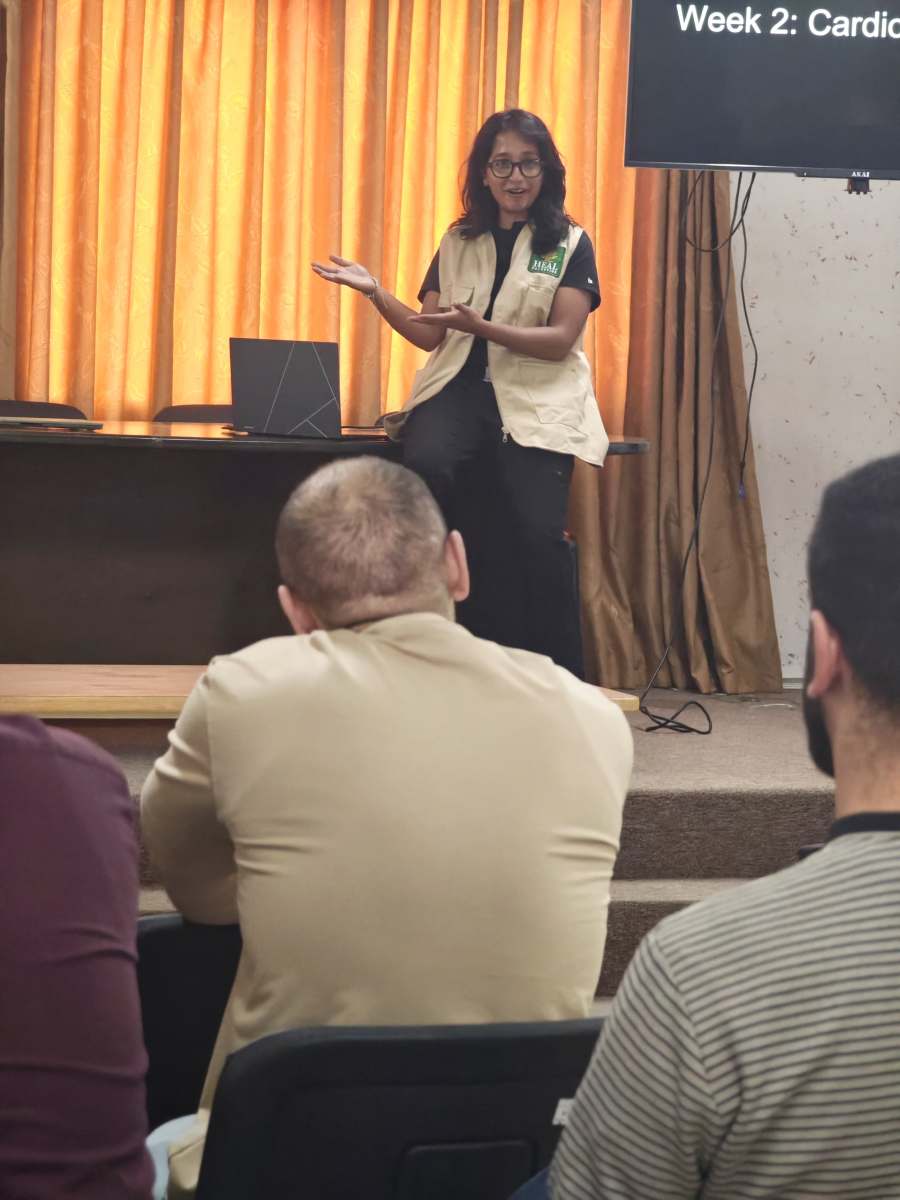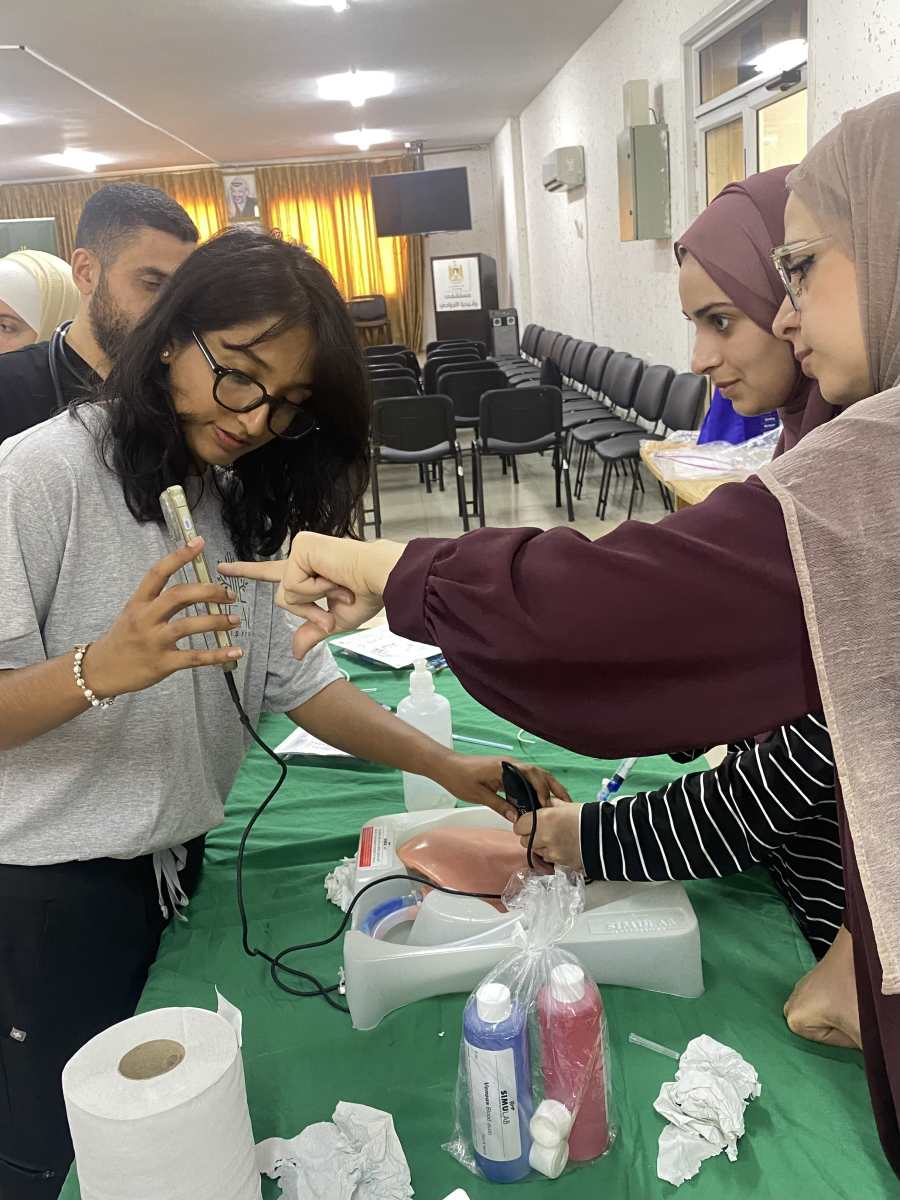I am a Global Health and International Emergency Medicine Fellow at Yale University School of Medicine and practicing emergency medicine physician. This September, I will travel to Rafidia Emergency Department in Nablus, West Bank, in partnership with HEAL Palestine as part of a longitudinal initiative to enhance the quality and sustainability of point-of-care ultrasound (POCUS) use in clinical settings. During this initial one-week trip, I will serve as a POCUS instructor, providing hands-on bedside training and delivering didactic lectures to emergency medicine providers. Our team is launching a structured "training of trainers" (ToT) curriculum designed to develop a local cadre of POCUS-trained educators who can continue instruction and mentorship autonomously. By prioritizing sustainability and local capacity-building, this project aims to improve diagnostic accuracy, strengthen procedural skills, and ultimately enhance patient care in the emergency setting.
Rafidia Hospital is one of the main public referral hospitals in the northern West Bank and serves a large, diverse patient population across Nablus and surrounding areas. Strengthening diagnostic capabilities at a local hospital in the West Bank is a critical step toward improving health outcomes in a conflict-affected region. POCUS has the potential to dramatically improve clinical decision-making in this environment—guiding procedures such as central line placement and paracentesis, evaluating trauma patients using eFAST scans, diagnosing cardiac tamponade, identifying early pregnancies, and more. This training will directly benefit physicians by providing hands-on training to improve clinical confidence, diagnostic accuracy, and procedural safety. Indirectly, the program will benefit thousands of patients who seek emergency care at Rafidia each year—particularly those for whom rapid, bedside diagnostic decision-making can be lifesaving.
This initiative marks the beginning of a longitudinal partnership aimed at building POCUS capacity in the West Bank. In the short term, the course will provide immediate, practical skills to frontline physicians across several specialties including emergency medicine, surgery, and anesthesiology. In the long term, the training-of-trainers model will empower local providers to become educators themselves—creating a self-sustaining program that embeds ultrasound training into future clinical practice and medical education. My participation in this course builds on prior experience leading a similar POCUS program in Nairobi, Kenya, for which I received Doximity Foundation support in 2023. I plan to remain engaged with the West Bank team through follow-up visits, virtual collaboration, and mentorship, contributing to a lasting, locally led advancement in POCUS use.
This project also represents an important step in my own development as a global health educator. As I continue to build expertise in capacity-building in low-resource settings, this experience will deepen my understanding of how to adapt educational programs to local needs, navigate cultural and health system dynamics, and contribute to long-term systems strengthening. I hope to carry these lessons forward in future global health partnerships and academic work focused on medical education, emergency care access, and sustainable health workforce development.






In September 2025, I traveled with three colleagues to Rafidia Surgical Hospital in Nablus, West Bank, to conduct a week-long point-of-care ultrasound (POCUS) training program in partnership with HEAL Palestine. Prior to the trip, we held weekly didactics virtually to review core concepts in POCUS.
Over the course of our week in Nablus, we trained approximately 30 physicians from a range of specialties, including emergency medicine, surgery, and anesthesiology. Each day consisted of two sessions combining didactic instruction with hands-on scanning practice. One day was devoted entirely to ultrasound-guided procedures, including pericardiocentesis, peripheral and central venous access, and nerve blocks. To ensure continued learning and support beyond the on-site sessions, we established an online platform for remote mentorship and image review.